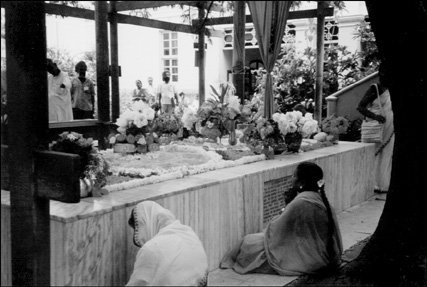

Yoga turned towards an all-embracing realisation of the Supreme will not despise the works or even the dreams, if dreams they are, of the Cosmic Spirit or shrink from the splendid toil and many-sided victory which he has assigned to himself in the human creature. But its first condition for this liberality is that our works in the world too must be part of the sacrifice offered to the Highest and to none else, to the Divine Shakti and to no
other Power, in the right spirit and with the right knowledge, by the free soul and not by the hypnotised bondslave of material Nature. If a division of works has to be made, it is between those that are nearest to the heart
of the sacred flame and those that are least touched or illumined by it because they are more at a distance, or between the fuel that burns strongly or brightly and the logs that if too thickly heaped on the altar may impede the ardour of the fire by their damp, heavy and diffused abundance. But otherwise, apart from this division, all activities of knowledge that seek after or express Truth are in themselves rightful materials for a complete offereing; none ought necessarily to be excluded from the wide framework of the divine life. The mental and physical
sciences which examine into the laws and forms and processes of things, those which concern the life of men and animals, the social, political, linguistic and historical and those which seek to know and control the labours and activities by which man subdues and utilises his world and environment, and the noble and beautiful Arts which are at once work and knowledge, - for every well-made and significant poem, picture, statue or building is an act of creative knowledge, a living discovery of the consciousness, a figure of Truth, a dynamic form of mental and vital
self-expression or world-expression, - all that seeks, all that finds, all that voices or figures is a realisation of something of the play of the Infinite and to that extent can be made a means of God-realisation or of divine formation. But the Yogin has to see that it is no longer done as part of an ignorant mental life; it can be accepted by him only if by the feeling, the remembrance, the dedication within it, it is turned into a movement of the spiritual consciousness and becomes a part of its vast grasp of comprehensive illuminating knowledge.
-- Sri Aurobindo, The Synthesis of Yoga pp. 132-133